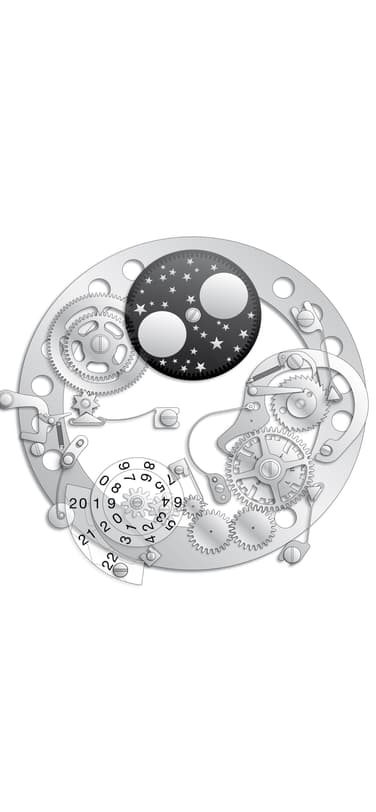Perpetual calendar
In the early 1980s, IWC’s head-watchmaker Kurt Klaus set out on an engineering journey to translate the Gregorian calendar with its many irregularities into a mechanical program for a wristwatch. His ingenious perpetual calendar, which debuted in the Da Vinci Perpetual Calendar in 1985, comprises only about 80 parts and displays the date, day, month, year in four digits, and the moon phase. The smart mechanical program automatically recognises the different length of the months, and even adds a leap day at the end of February every four years. The moon phase display is so precise that it will deviate from the actual phase of the moon by just one day after 577.5 years. All displays are perfectly synchronised and can be adjusted simply by turning the crown. Some models come with an additional century slide, so the watch can continue showing the date until 2499. The calendar only needs a small adjustment in those centurial years that skip the leap year, which is the case in 2100, 2200, and 2300. Some versions of the calendar feature a double moon phase display, showing the moon phase on the northern and southern hemispheres.
